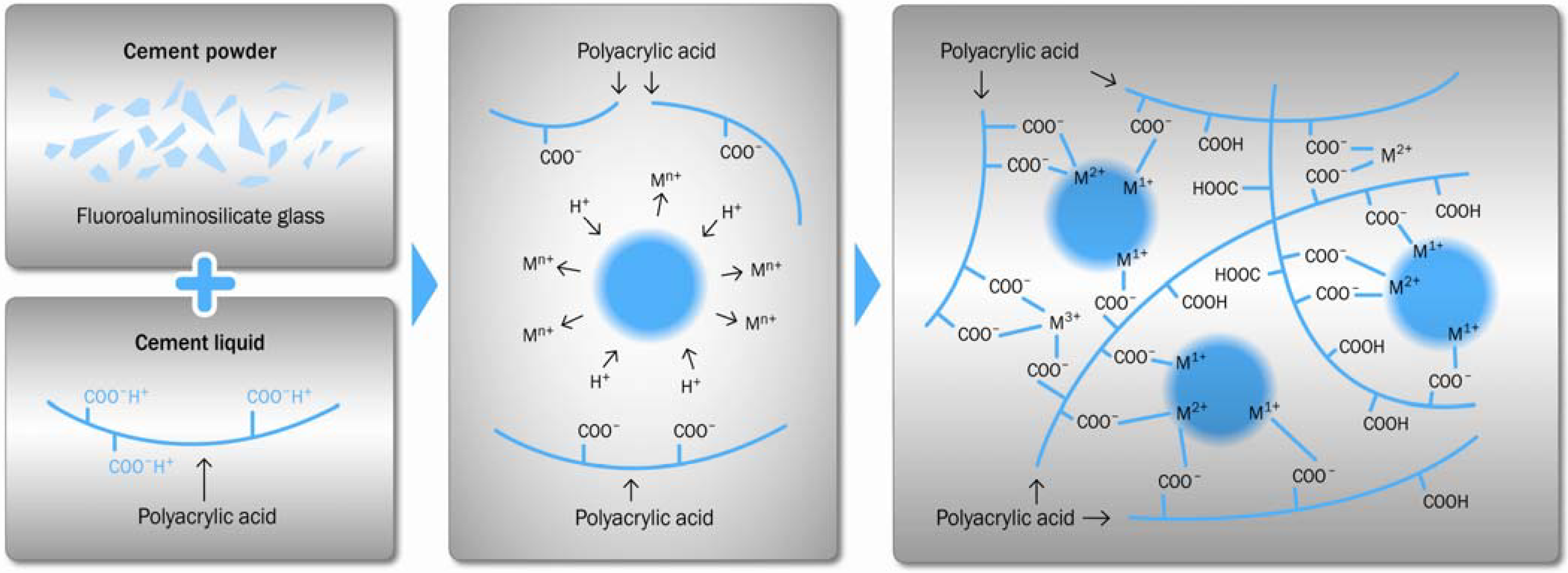| name | Glass Ionomer Cement |
| classification | Dental restorative material |
| pharmacokinetics | Glass ionomer cements are not absorbed systemically. Their action is localized to the tooth structure and surrounding tissues where they are placed. |
| suggested dosage | Dosage is not applicable in this context. Glass ionomer cement is a dental material, not a medication. The amount and type of placement is determined by the dentist based on the specific clinical need. |
| indications | Glass ionomer cements are used for a variety of dental restorative and preventive purposes, including:
* **Luting agents:** Bonding crowns and bridges to teeth
* **Filling cavities:** Especially in areas where fluoride release is desired.
* **Base material:** Protecting tooth structure from acids
* **Fissure sealants:** Preventing cavities by sealing grooves in the teeth.
* **Pulp capping:** Temporary covering of exposed pulp. |
| safety in pregnancy | Limited human data are available. However, the material is generally considered safe for use during pregnancy if used appropriately by a dental professional. Consult with your dentist. |
| safety in breastfeeding | Limited human data are available. However, the material is generally considered safe for use during breastfeeding if used appropriately by a dental professional. Consult with your dentist. |
| side effects | Possible, but usually infrequent side effects include:
* **Sensitivity:** Mild to moderate sensitivity in the treated tooth, gums or adjacent teeth is possible.
* **Allergic reaction:** Possible allergic reactions to some components of the cement.
* **Discomfort:** A minor discomfort or mild swelling is sometimes experienced immediately after application.
* **Erosion or dissolution:** In some cases, the material might erode or dissolve if not properly placed or maintained. |
| alternatives | |
| contraindications | Glass ionomer cement should not be used in patients with known hypersensitivity to any of its components. Avoid use in teeth with significant inflammation. |
| interactions | No significant drug interactions are known, as glass ionomer cement is a dental material not absorbed into the bloodstream. |
| warnings and precautions | Glass ionomer cement should only be used by qualified dental professionals. Appropriate isolation and handling techniques are crucial. Ensure proper mixing and placement techniques to prevent side effects and ensure the material's effectiveness. Follow manufacturer instructions. |
| additional informations | Glass ionomer cement releases fluoride ions slowly over time, which helps to promote remineralization and prevent decay. This can be beneficial for teeth health but is not a substitute for preventative measures. The patient's age and weight are not factors in determining the appropriateness of this material for use in a specific situation. |
| patient specific notes | The information provided here is for general knowledge and educational purposes only. It is not a substitute for professional medical advice. Always consult with a qualified dentist for diagnosis and treatment of any dental conditions. |

